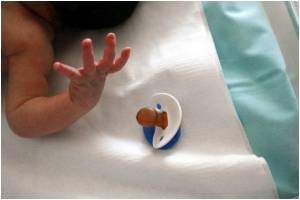In infants, imaging technique shows that premature birth interrupts vital brain development processes, leading to reduced cognitive abilities.

The researchers say the new techniques developed here will enable them to explore how the disruption of key processes can also cause conditions such as autism, and will be used in future studies to test possible treatments to prevent brain damage.
The study was funded by: the Medical Research Council; the Engineering and Physical Sciences Research Council; the National Institute for Health Research (NIHR) Biomedical Research Centre at Guy's and St Thomas' NHS Foundation trust and King's College London; and the NIHR Biomedical Research Centre at Imperial College London. Infants involved in the study were being cared for in the Neonatal Intensive Care Unit at Queen Charlotte's and Chelsea Hospital.
Scientists from King's College London and Imperial College London used diffusion MRI – a type of imaging which looks at the natural diffusion of water – to observe the maturation of the cerebral cortex where much of the brain's computing power resides. By analysing the diffusion of water in the cerebral cortex of 55 premature infants and 10 babies born at full term they mapped the growing complexity and density of nerve cells across the whole of the cortex in the months before the normal time of birth.
They found that during this period maturation was most rapid in areas of the brain relating to social and emotional processing, decision making, working memory and visual-spatial processing. These functions are often impaired after premature birth, and the researchers found that cortical development was reduced in preterm compared to full term infants, with the greatest effect in the most premature infants. When they re-examined the infants at two years of age, the preterm infants with the slowest cortical development performed less well on neurodevelopmental testing, demonstrating the longer-term impact of prematurity on cortical maturation.
Professor David Edwards, Director of the Centre for the Developing Brain at King's College London, based at the Evelina Children's Hospital, said: 'The number of babies born prematurely is increasing, so it has never been more important to improve our understanding of how preterm birth affects brain development and causes brain damage. We know that prematurity is extremely stressful for an infant, but by using a new technique we are able to track brain maturation in babies to pinpoint the exact processes that might be affected by premature birth. Here we have used innovative ways to understand how the development of the cerebral cortex is affected.
Advertisement
'These new techniques we've developed to identify these crucial processes will allow us to examine how disruption caused by premature birth can lead to conditions such as autism and learning difficulties. We will also use the technique in future studies to test new treatments to prevent brain damage. It's an extremely exciting step forward.'
Advertisement















